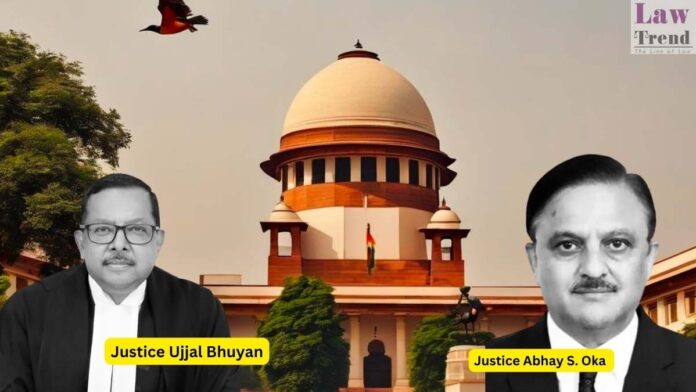In a significant ruling, the Supreme Court of India has held that a Foreigners Tribunal cannot reopen a concluded case and sit in appeal over its own final judgment. The apex court set aside an order passed by the Foreigners Tribunal (F.T.) of Assam, which had revisited an earlier adjudication that had already declared Rejia
To Read More Please Subscribe to VIP Membership for Unlimited Access to All the Articles, Download Available Copies of Judgments/Order, Acess to Central/State Bare Acts, Advertisement Free Content, Access to More than 4000 Legal Drafts( Readymade Editable Formats of Suits, Petitions, Writs, Legal Notices, Divorce Petitions, 138 Notices, Bail Applications etc.) in Hindi and English.




